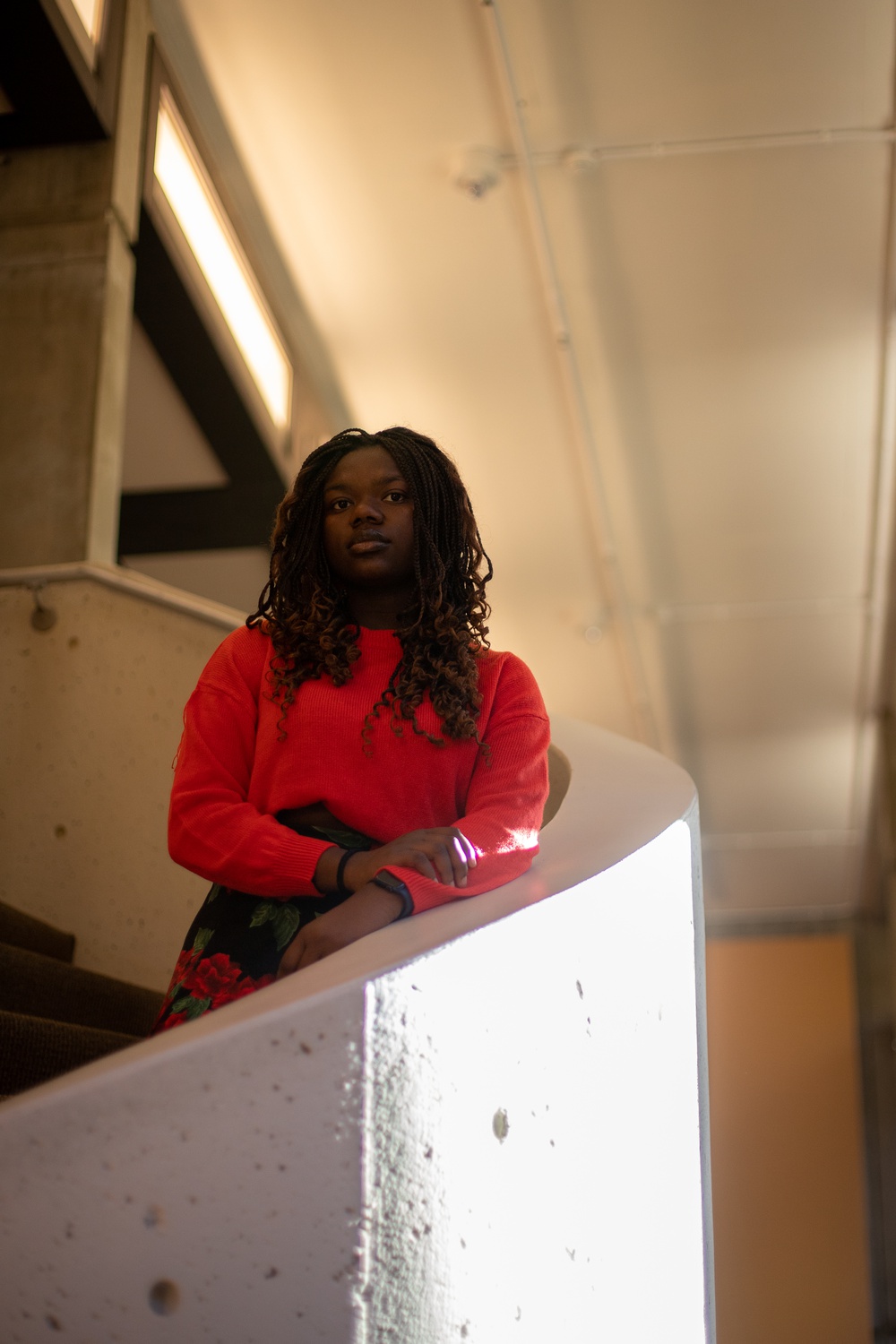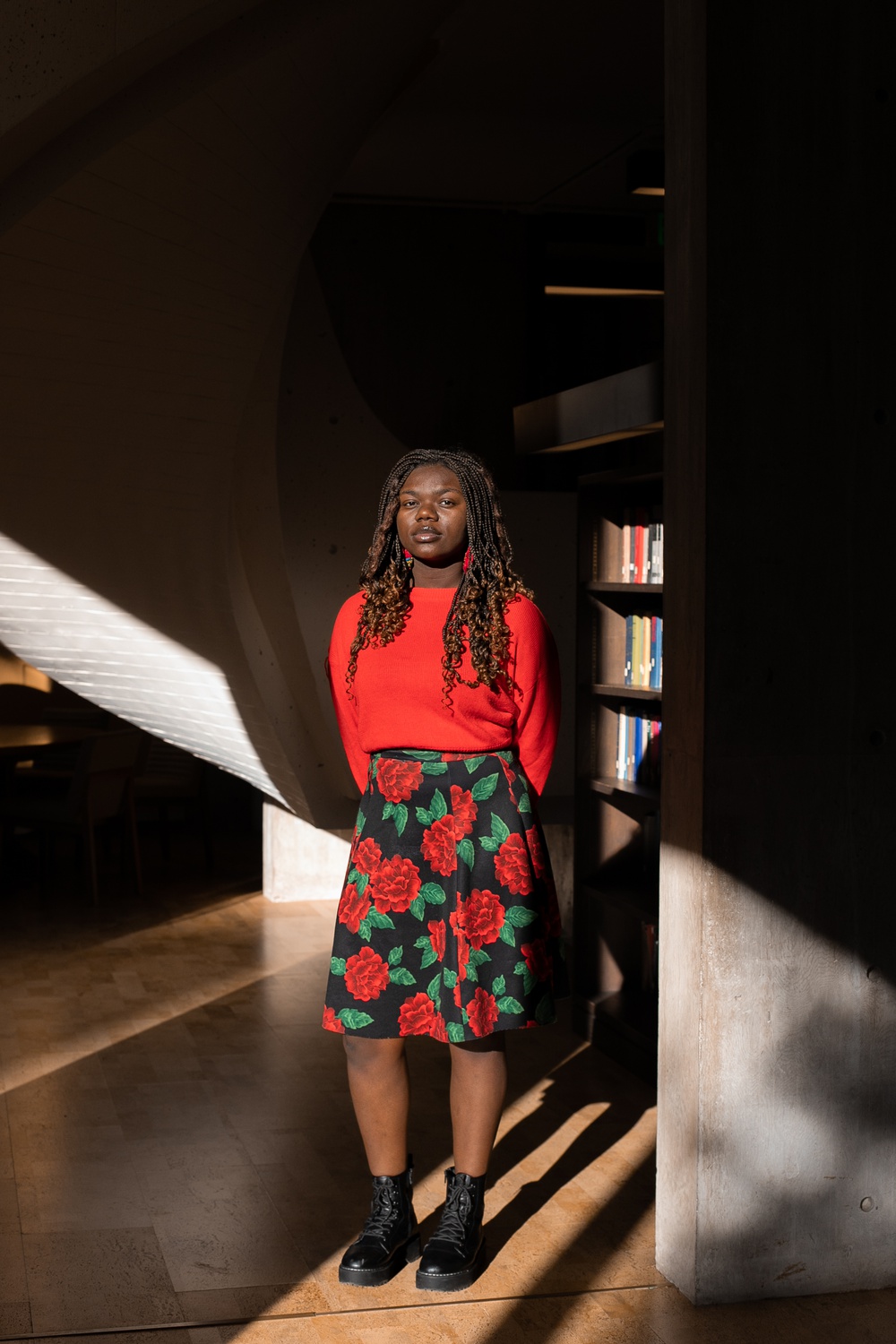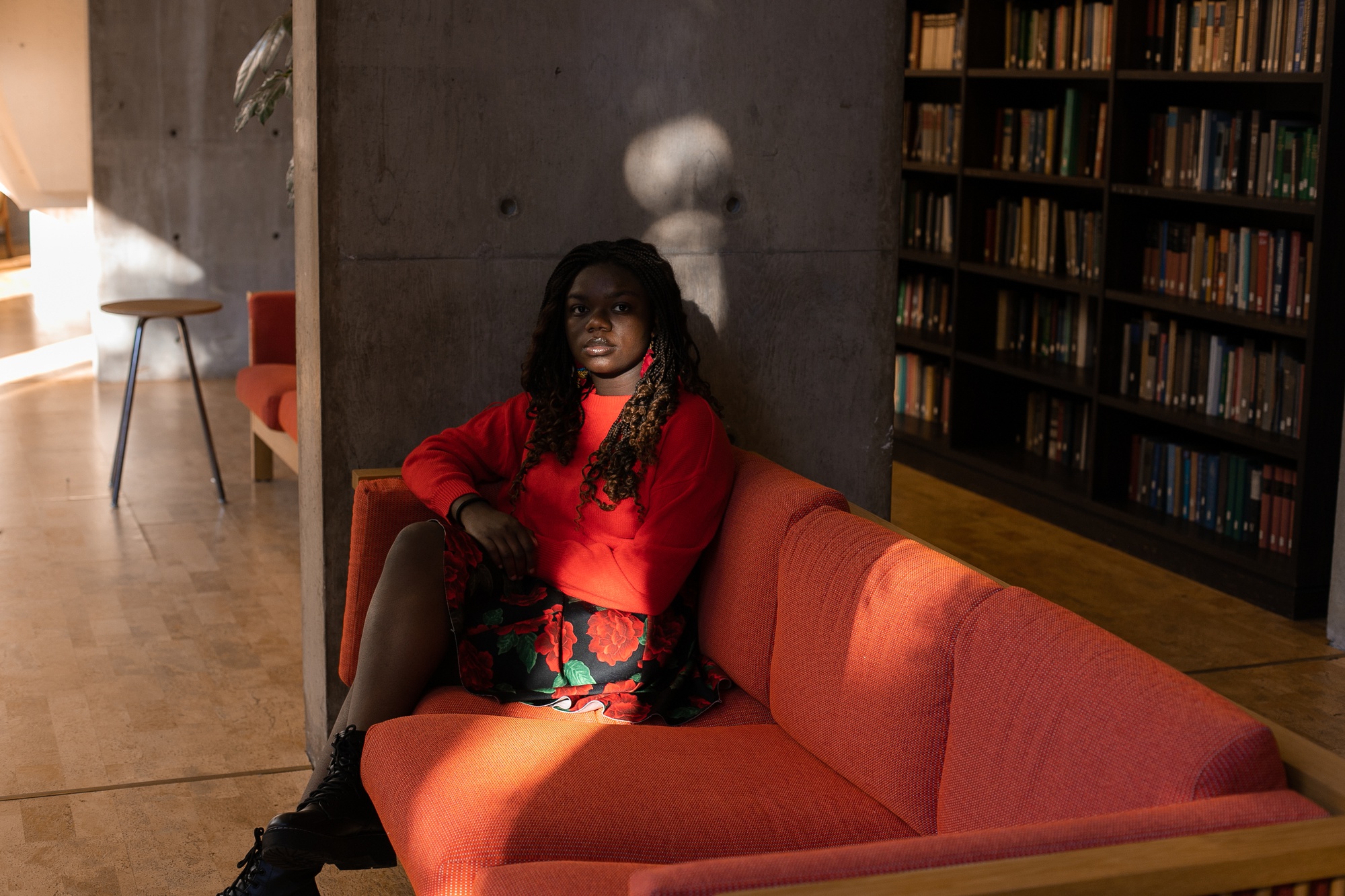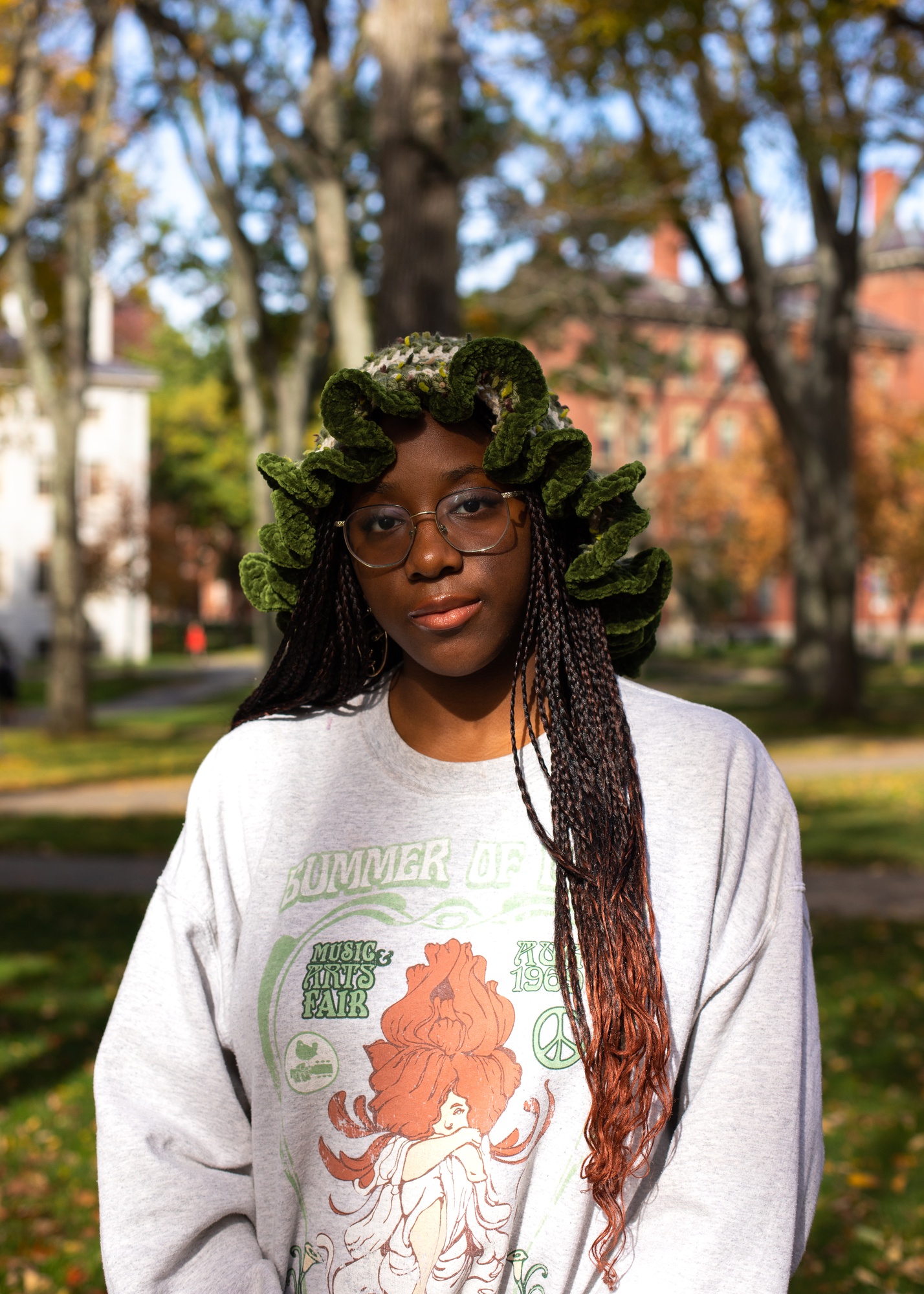
An Editorial Photo Essay: Musings on Affirmative Action
By Dumebi M. Adigwe, Contributing Opinion WriterEditor’s note: The following pictures of Harvard undergraduate students were all taken in the weeks leading up to the Supreme Court oral arguments in the Students for Fair Admissions Inc. v. President & Fellows of Harvard College trial, which is broadly seen as likely to weaken or dismantle race-conscious admissions policies if not affirmative action altogether. The images, along with the musings of the students pictured, are meant to freeze in time a fraction of our campus as it was before the tide began to shift.
Photographs by Dumebi M. Adigwe ’23
Editorial Chair Guillermo S. Hava helped curate the picture selection and edited the quotes for length and clarity.
Onovughakpor M. Otitigbe ’25
“While affirmative action policies played a part in the admission of students of color being here, the truth is our academic talents and extracurricular pursuits solidified our rightful place in this class – and those talents speak for themselves. Many of us struggled to get here. There is nothing preferential about our experiences to get to Harvard. And we’re still struggling to keep our place. We all deserve a level playing field of opportunity.”
Angie Shin ’23
“Affirmative action is fair admissions, and the justices should see that and the research, facts, and testimonies that back that. Affirmative action admits are proud that these policies aknowledge and pay respect to our struggles in an unjust system, and race-blind socioeconomic alternatives will never be adequate enough to properly explain our worth and potential”
Isa E. Peña ’24
“Race should never be seen as a credential for why someone should be at an institution like Harvard. Everyone who comes to Harvard should deserve to be here, but I don’t think Affirmative Action implies that people are coming here that aren’t getting in on the basis of their talent. Being at Harvard would not be the same were it not for the diverse and unique perspectives brought forth by underrepresented groups. It seems to me that SCOTUS believes educational diversity can be achieved without directly taking account of race, but that’s just untrue.”
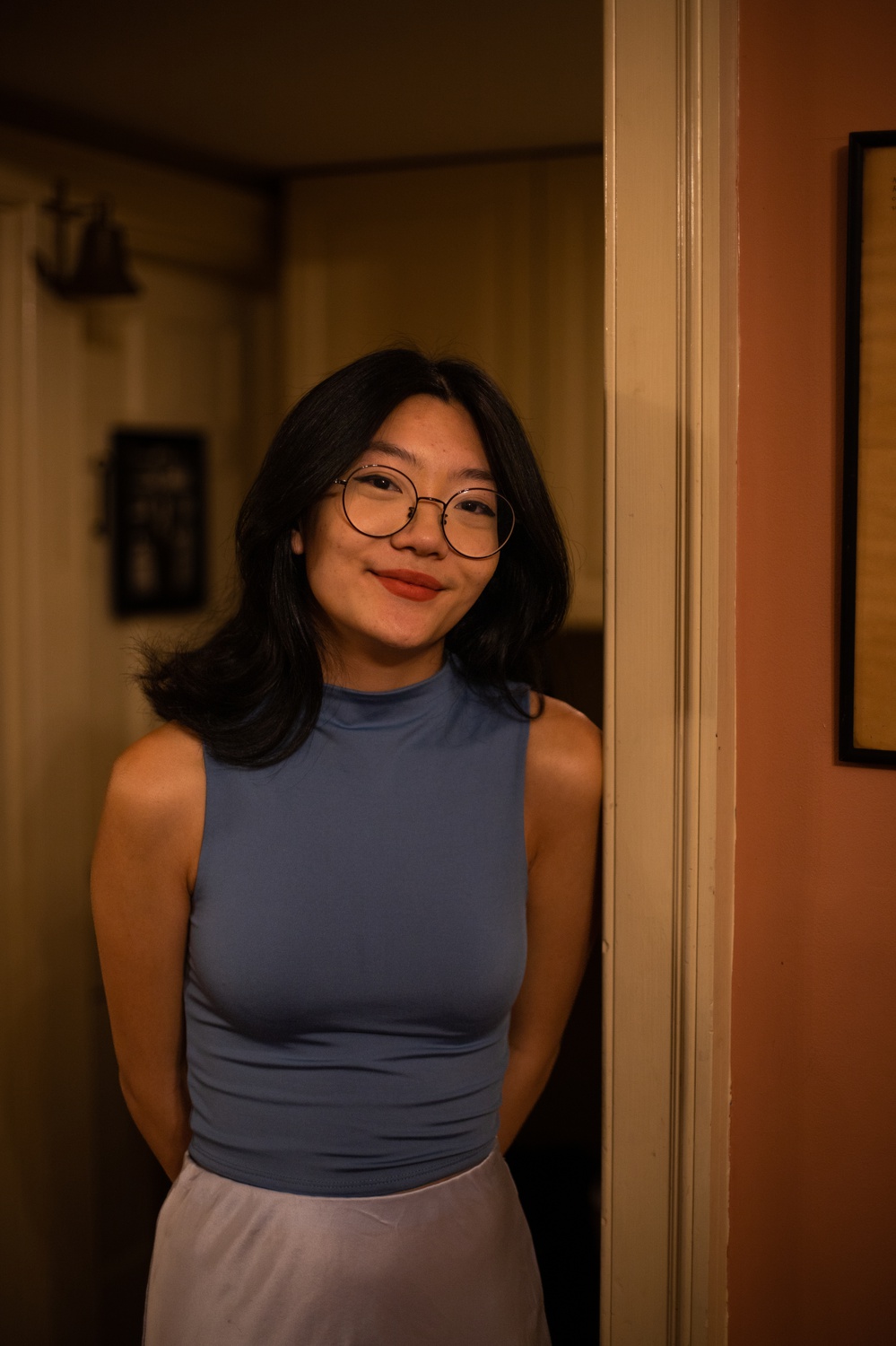
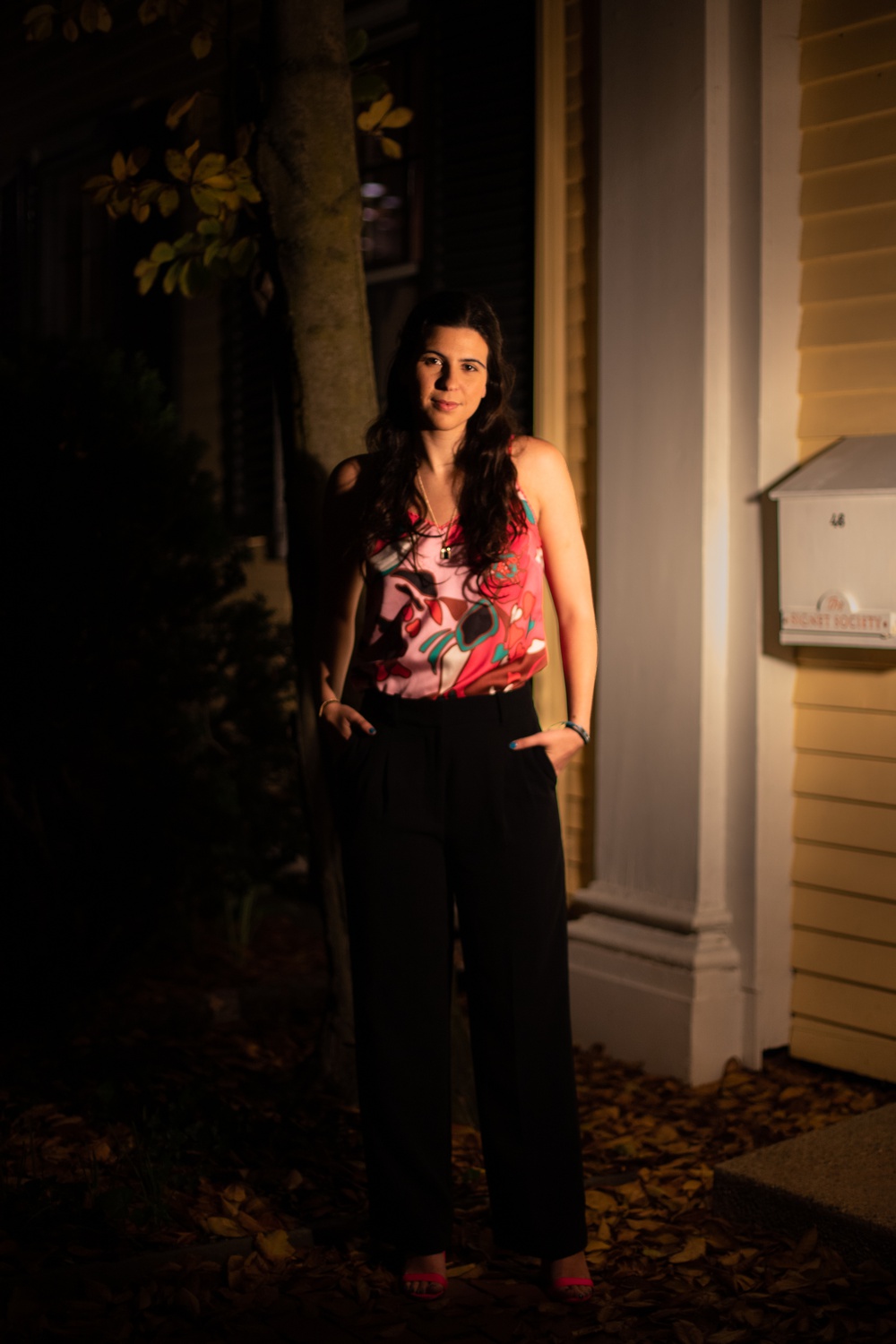

Chelsea Wang ’25
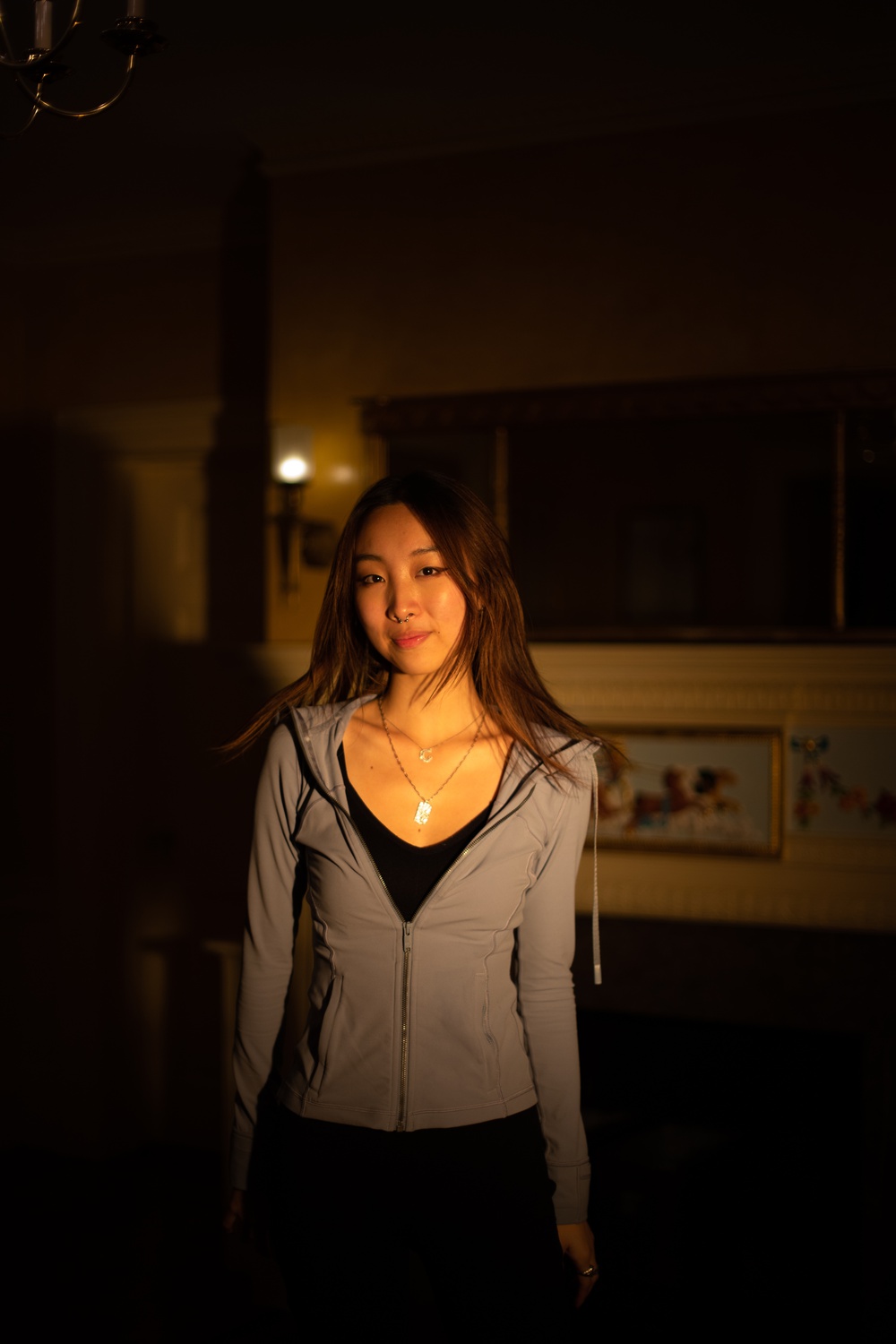
“White supremacy continues to wield the model minority myth as a tool to divide people of color. In portraying affirmative action as a zero-sum game between Asian Americans and other minorities, Students for Fair Admissions is, once again, using Asian Americans to invalidate the struggles of other people of color. As Asian Americans, we must speak out against these narratives and call on our communities to do the same.
Although 69 percent of Asian Americans support affirmative action, I want to address the concerns of those who disagree. Here’s what SFFA won’t tell you: The effect of Asian American ethnicity on an applicant’s likelihood of admission is statistically indistinguishable from zero. There is actually a positive correlation between being an Asian American woman and an applicant’s likelihood of admission. And if the Court outlaws affirmative action, the group that gains the most representation would not be Asian Americans. The number of white students at Harvard would increase by three times the number that Asian American students would. The notion that affirmative action discriminates against Asian applicants is a malicious myth, and its abolition would only hurt disadvantaged Asian Americans.”
Muskaan Arshad ’25
“No racial or ethnic groups have a monopoly on talent or intelligence, but some students have a monopoly on affirmative action, and race-conscious policy accounts for that discrepancy. This isn’t just Harvard, it is universities around the country, this can have an incalculable impact, so we have to fight against white supremacy, we have to fight for solidarity.
I as an Asian American refuse to be used as a ploy for white supremacy.”
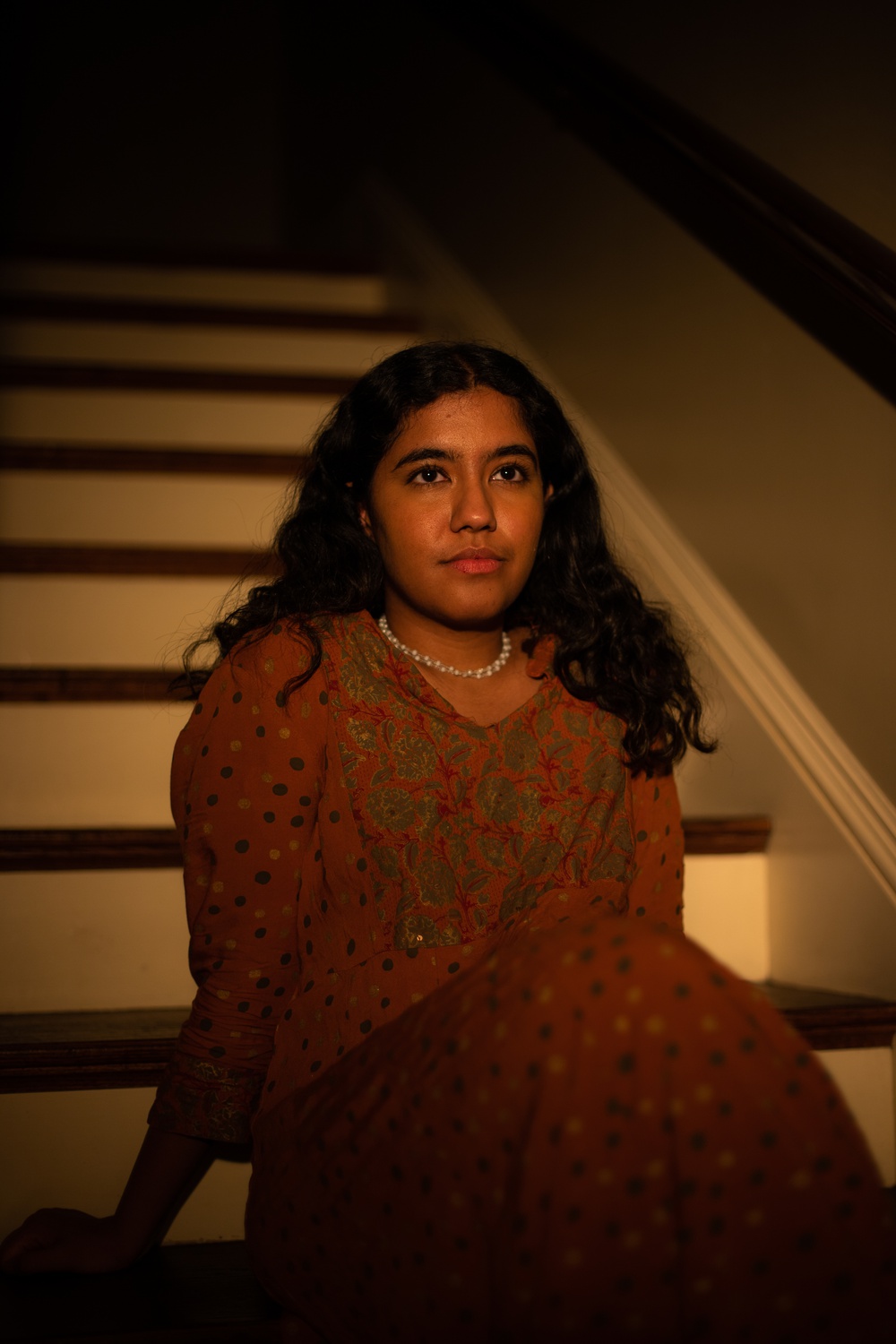
Kashish Bastola ’26 & Kawsar Yasin ’26
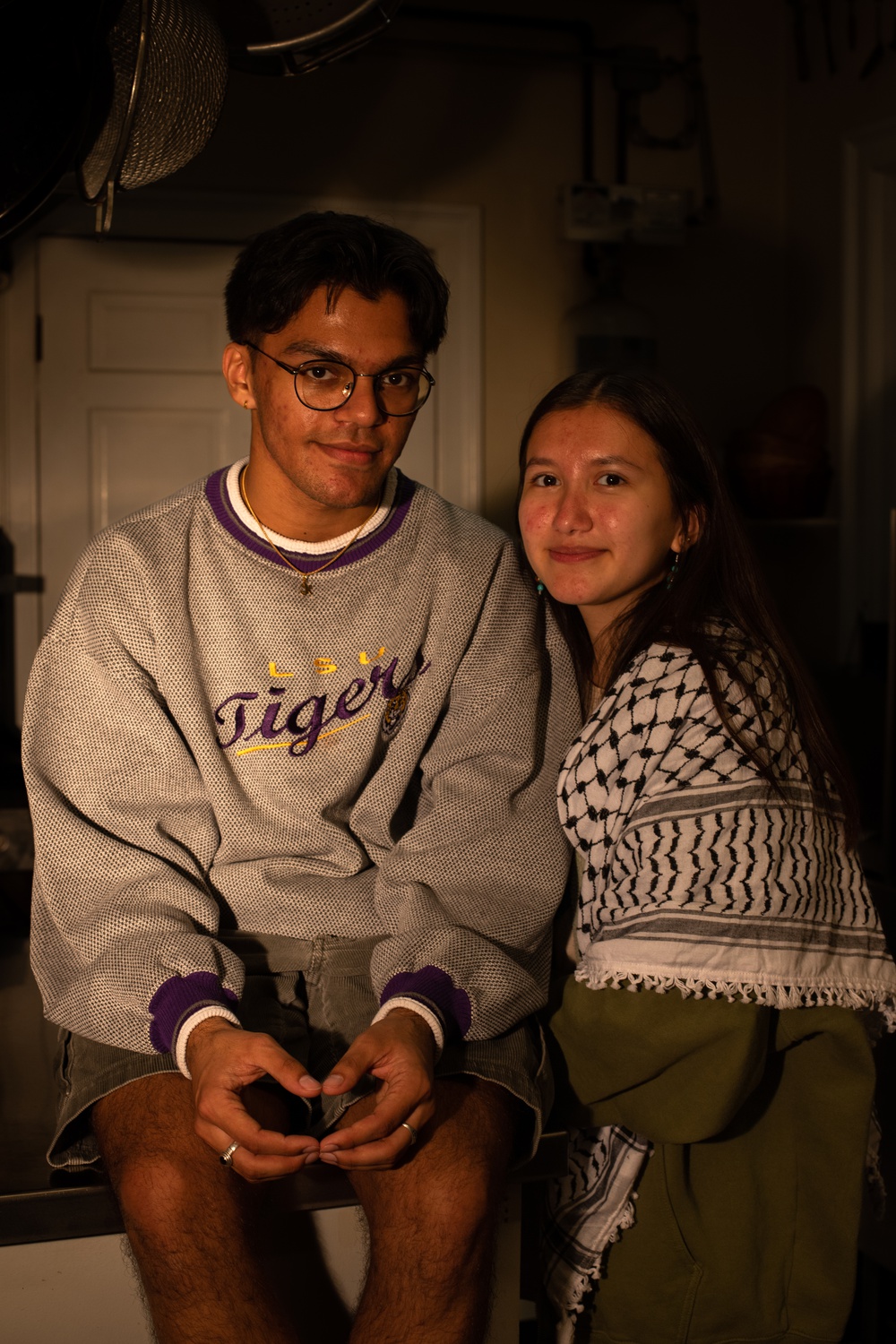
KB: “I am worried for the generations after us. I have heard enough apologies from folks before us, and I dread the day that we will be apologizing to the next generation about the conditions they are forced to grapple with. As Harvard students, we are bound together by more commonalities than differences. If we can unite to show the world that we unequivocally support each other and the values of diversity and opportunity, we will win regardless of the outcome of this challenge. We cannot fall into a racial conflict fueled by myths. Harvard students must reflect on what our campus community means to themselves. The path forward lies in this reckoning and the incessant conversations which result from it.”
KY: For decades, the Supreme Court has consistently affirmed race-conscious admissions in higher education. After arriving at Harvard from my mid-size east Texas town, I found community in so many diverse spaces on campus. It’s terrifying to think that this could disappear. This attack on affirmative action is rooted in white supremacy and has dangerously painted Asian Americans as a monolith, creating division. Now, I’m reclaiming my identity and using it to unify.
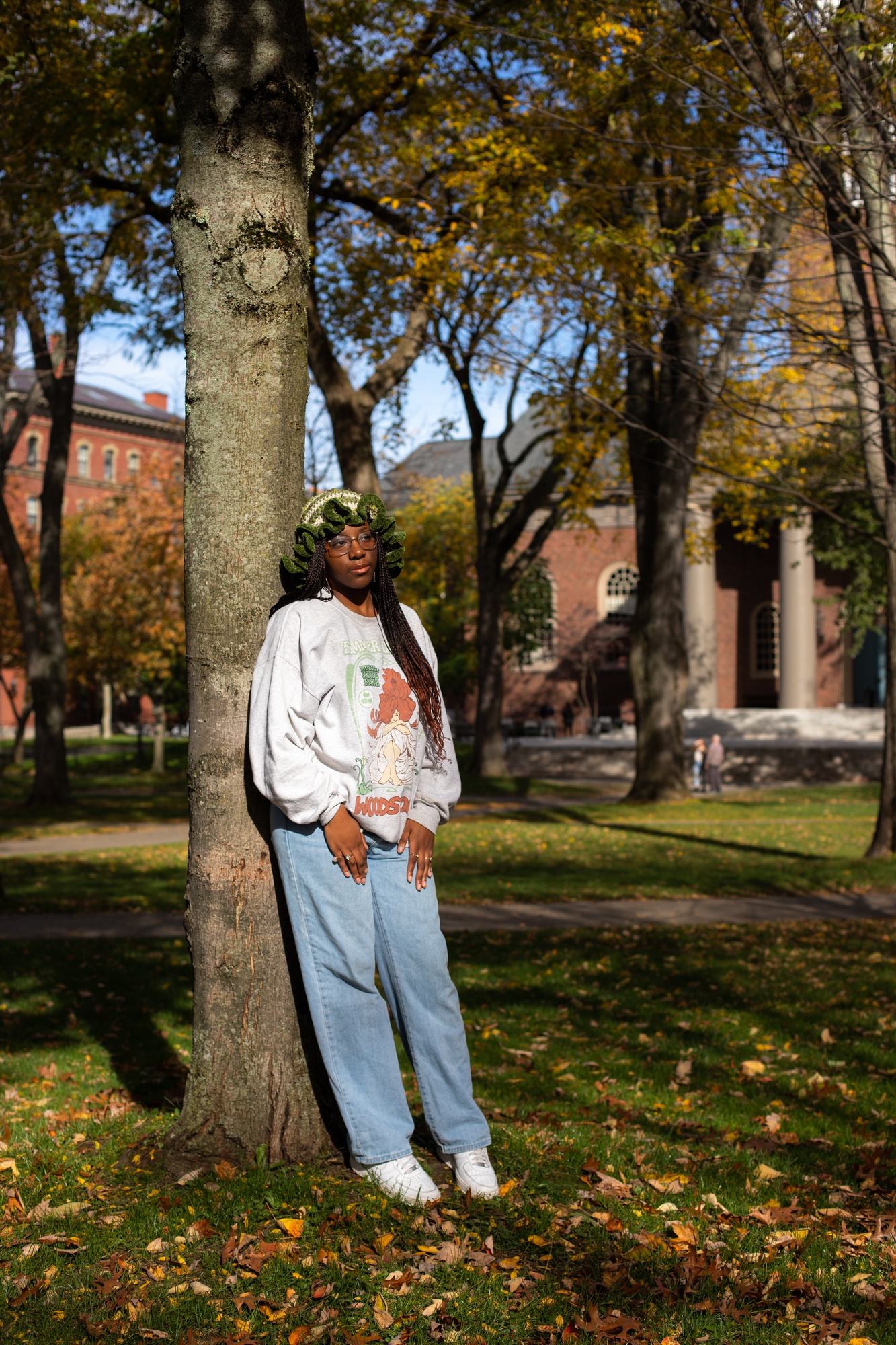
Stacey D. Fabo ’24
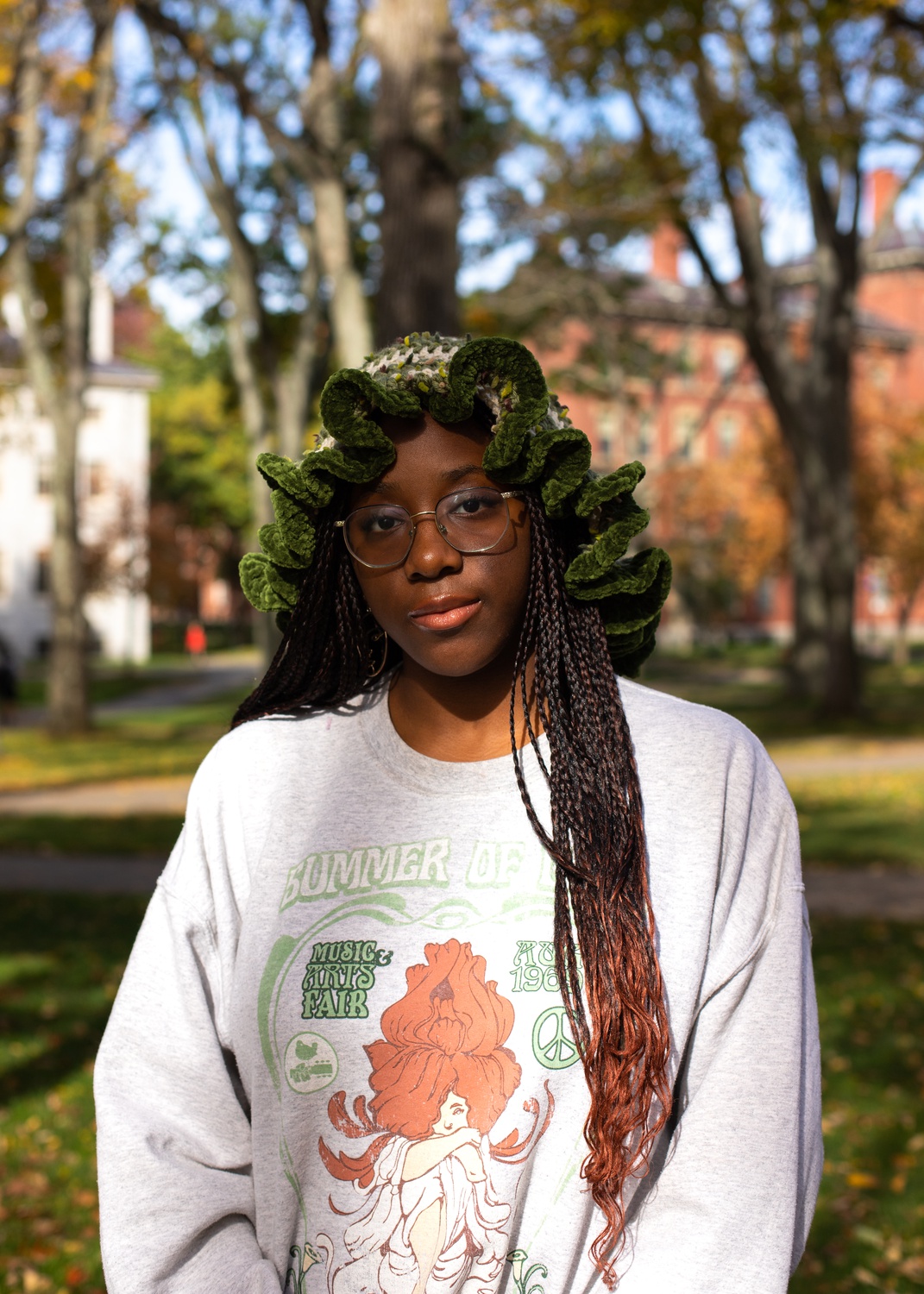
“Admissions based on merit has never and will never lead to a classroom full of diverse thought and experience. Affirmative Action is what makes me excited to go to my class sections because it’s allowed for people of different backgrounds to hold space in a historically white, rich school. So I personally think we still have so much more to do in order to further diversify Harvard. Also, as a person being able to overcome racial and socioeconomic barriers to get to the point where they can aspire to attend a school like this shows more merit to me than bubbling some answers on the SAT.”
Devine A. Bauman ’24 & Ben H. Hogewood ’23
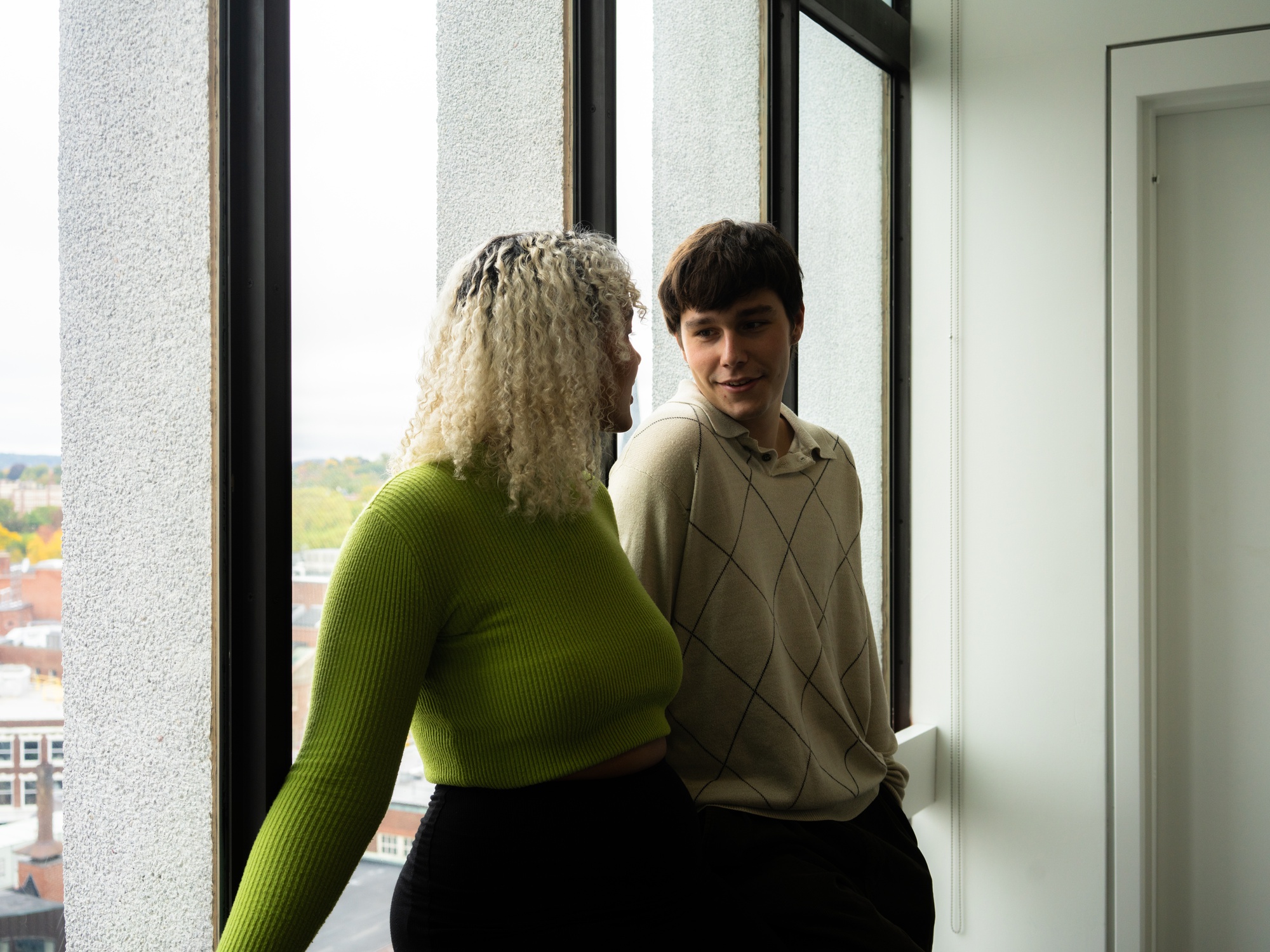
BHH: “Affirmative action is super necessary given this institution’s history of explicitly denying entrance to students of color. But beyond historical injustices, the present system of determining an applicant’s worth relies heavily on instruments and institutions created in and for a white supremacist culture. Not only do we limit our cultural diversity in educational spaces, but we greatly inhibit our ability to know the truth in any subject matter when many perspectives are not readily present as the hegemonic one (which again is only here, and hegemonic, due to centuries of imperialism, slavery, colonialism, racism, and genocide, yet despite all the obvious delegitimizing factors, the whites are still making admissions decisions and make up the vast majority of the faculty.
Veritas is impossible in a place like this.”


